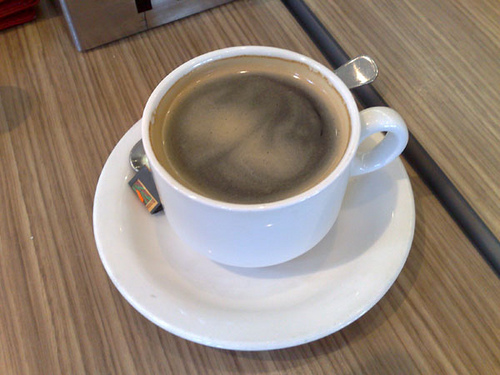Finding the right low-acid coffee
A lot of people have trouble with the acidity of most coffee. Black coffee has a pH of 5, less acid than tomato juice (pH of 4) but more acidic than plain water (pH of 7). There are some low-acid coffee blends around, for those who need their coffee but can't tolerate the acid. But frankly, a lot of them are just not very good.
Acidity is a complicated issue when it comes to coffee, because not all coffees are equal. The acidity level in coffee depends on the specific coffee plant variety, where the coffee was grown, how it was roasted, and how it has been ground.
According to this Chowhound forum user, the lower the altitude a coffee bean was grown at, the lower the acidity. Thus, coffee varieties from places like Brazil, India, and Indonesia will all be naturally lower in acidity than high-altitude coffees like those grown in Kenya or Costa Rica.
The darker the roast, the lower the acidity. This may seem counterintuitive, but it happens because the roasting process burns off the chemicals (like citric and malic acid) which contribute to coffee's acidity. And finally, a coarse grind releases less of the acids than a fine grind.
With this in mind, you can really narrow down your selection. A dark roast Sumatran coffee, coarse ground and brewed in a French press (which is the best way to enjoy coarse grind coffee) will be much lower in acidity than a medium or light roast Kenyan coffee, fine ground for an espresso or drip coffee maker.
In fact, going the extra mile to create your own low-acid coffee routine will be a much better experience than shelling out for special low-acid coffee grounds. These are grounds which have been specially treated to remove the acid, but this treatment tends to remove the flavor, too.
Image courtesy Flickr/anthony_p_c
